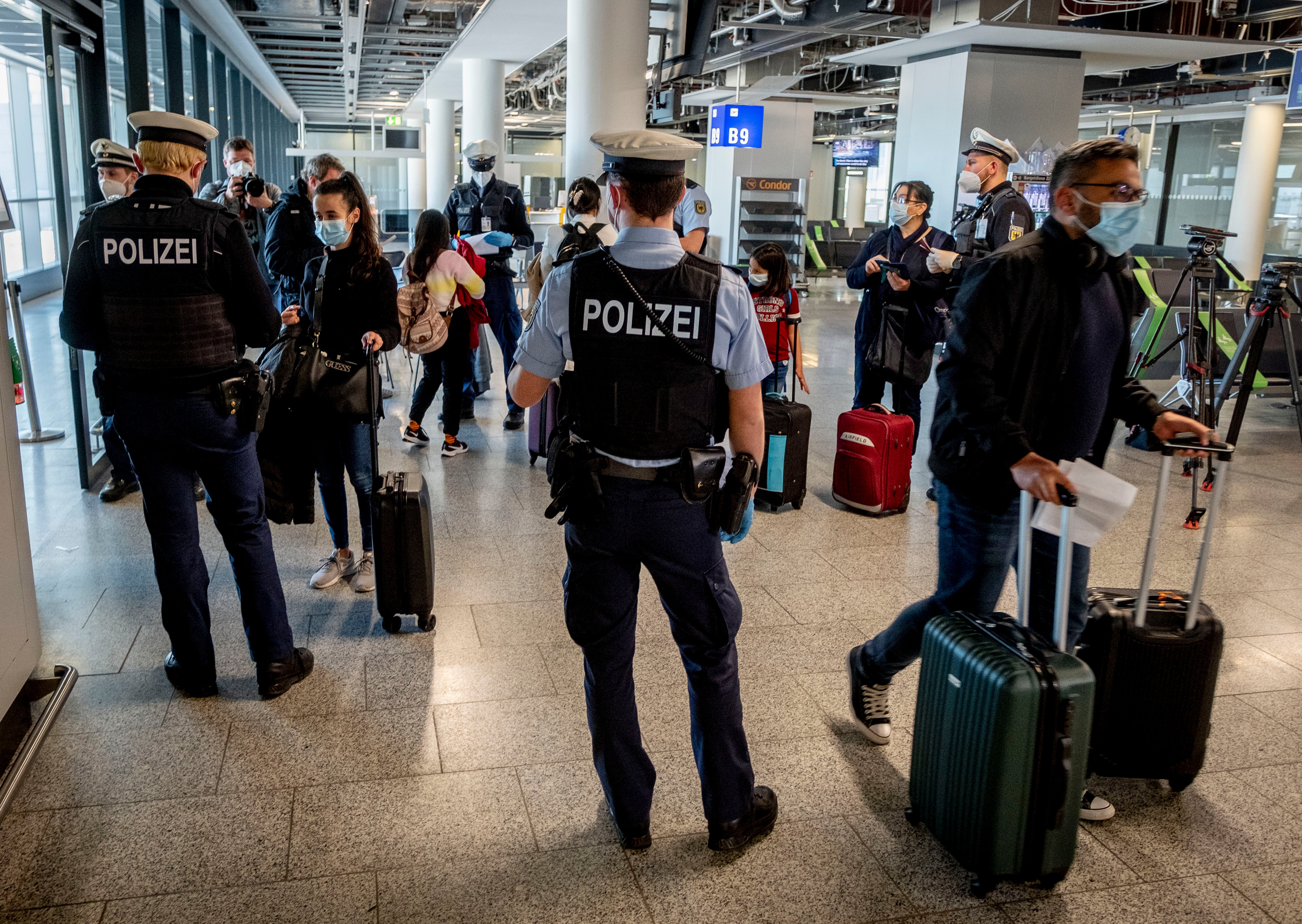Germany requires COVID tests for unvaccinated travelers
Germany will require people entering the country who haven’t been vaccinated or recently recovered from COVID-19 to show a negative test result starting from Sunday

Your support helps us to tell the story
From reproductive rights to climate change to Big Tech, The Independent is on the ground when the story is developing. Whether it's investigating the financials of Elon Musk's pro-Trump PAC or producing our latest documentary, 'The A Word', which shines a light on the American women fighting for reproductive rights, we know how important it is to parse out the facts from the messaging.
At such a critical moment in US history, we need reporters on the ground. Your donation allows us to keep sending journalists to speak to both sides of the story.
The Independent is trusted by Americans across the entire political spectrum. And unlike many other quality news outlets, we choose not to lock Americans out of our reporting and analysis with paywalls. We believe quality journalism should be available to everyone, paid for by those who can afford it.
Your support makes all the difference.Germany will require people entering the country who haven’t been vaccinated or recently recovered from COVID-19 to show a negative test result starting Sunday.
The change approved by the Cabinet on Friday applies to people 12 years old and above. It comes amid increasing concern about infections brought back from summer vacations pushing up Germany’s relatively low case rate. School holidays in some German states will end in about a week.
At present, unvaccinated people traveling by air are required to test negative before they get on a plane to Germany, regardless of where they are coming from. People crossing into Germany by other means of transport will now also have to prove their status. Authorities are expected to conduct spot checks at land borders rather than impose blanket controls.
People arriving from countries listed in Germany's highest risk category as “virus variant areas” will also have to present a test if they are vaccinated or have recently recovered. That list currently includes Brazil and South Africa but no European countries.
Germany’s disease control center said this week that more than four-fifths of the infections in Germany are still domestic, but there has been an increase in infected people who were probably exposed to the virus abroad -- particularly in Spain and Turkey, two popular vacation destinations.
Germany's infection rate remains much lower than several other European countries, but it has been creeping higher since hitting a low of 4.9 new weekly cases per 100,000 residents on July 6. On Friday, the figure stood at 16.5 new cases per 100,000 residents over the past week.
That is worrying officials at a time when the more contagious delta variant has become dominant in Germany and elsewhere in Europe, while vaccinations have slowed. By Thursday, 51.5% of Germany's population was fully vaccinated and 61.5% had received at least one vaccine dose.
Authorities are trying to come up with creative ways to whet more skeptical Germans' appetite for vaccination. On Friday, a vaccination center in the eastern town of Sonnenberg offered a free bratwurst to all comers — which, according to regional public broadcaster MDR, was met with a bigger uptake than usual in the first few hours.
Health Minister Jens Spahn noted that “in general terms, travel is easier with a vaccination — the vaccinated spare themselves testing and, in principle, don't have to go into quarantine.” He added that “the offer of vaccinations for everyone in the summer stands. We have enough vaccine.”
As well as tweaking the entry rules, the Cabinet decided Friday to simplify Germany's risk category system. It is cutting the number of categories from three to two — eliminating the lowest tier, for which barely any practical restrictions applied anyway.
___
Follow AP stories on the pandemic at https://apnews.com/coronavirus-pandemic.